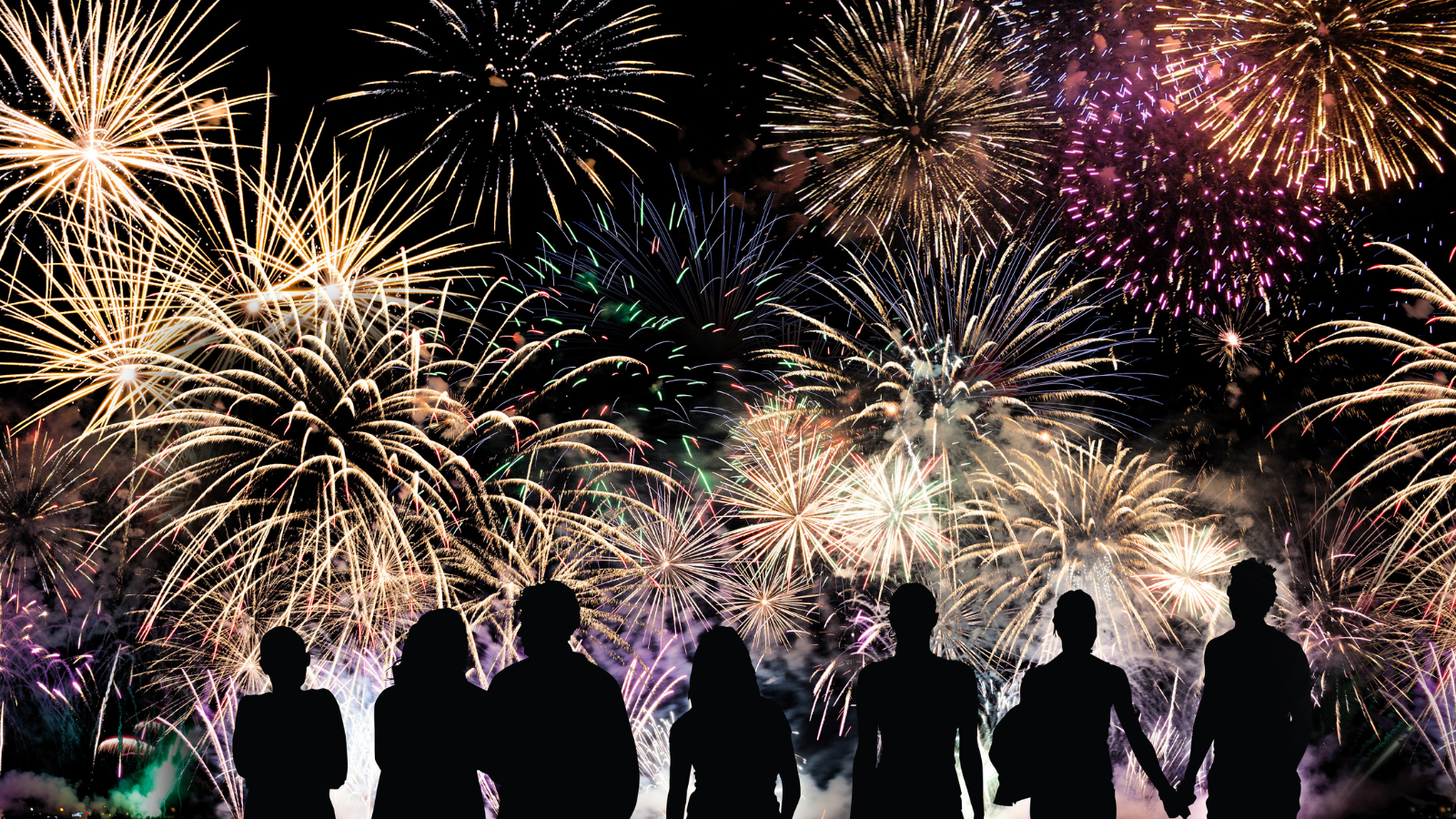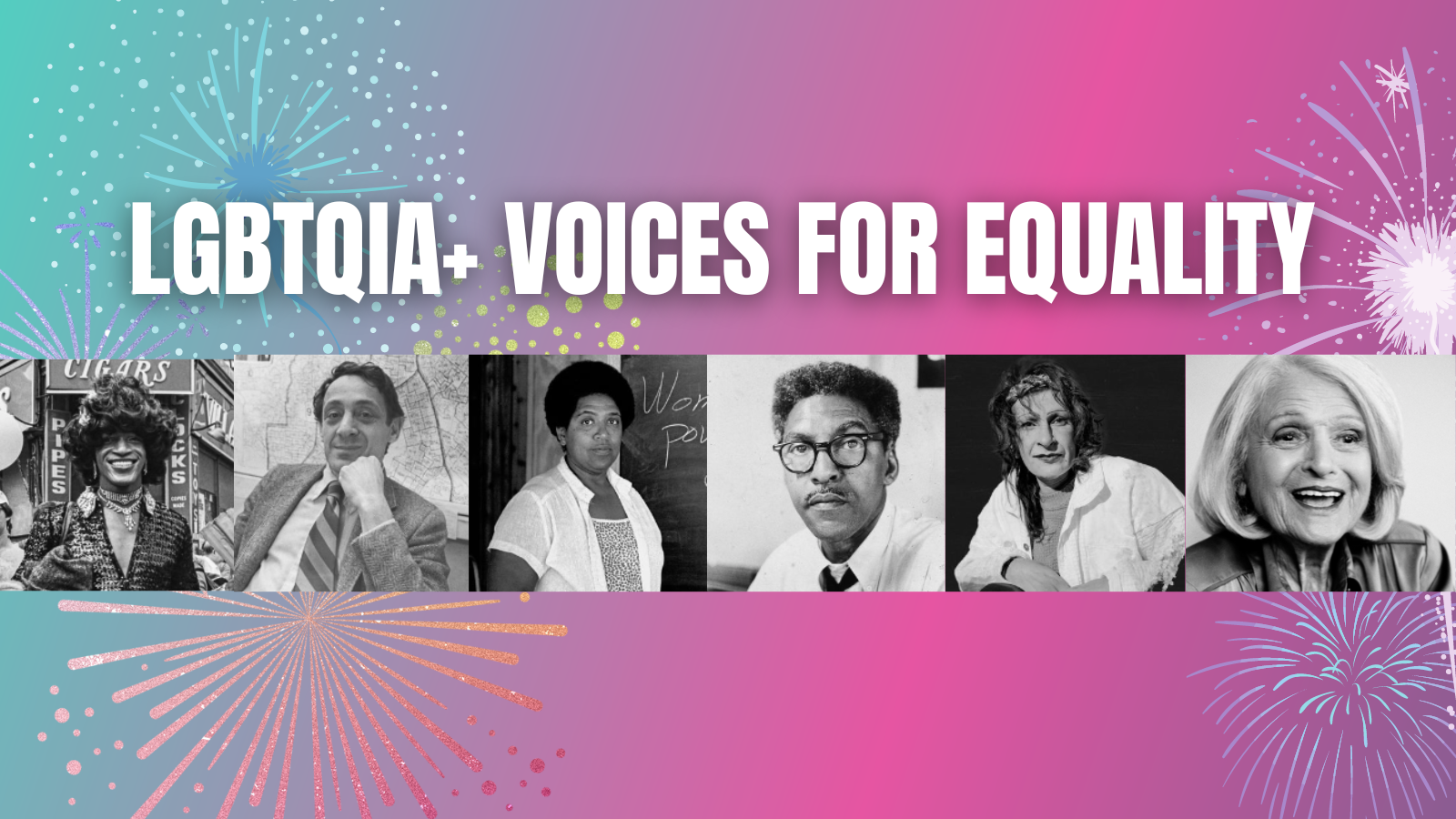Leveling the playing field with the ERA for Women in Sports
February 04, 2026
FOURTH OF JULY --- With the 4th of July just around the corner, we can feel the patriotic spirit in the air. It's a time of joyous celebrations, filled with barbecues, fireworks, and cherished moments with loved ones.
But as we gather to commemorate this historic day, it's crucial to recognize that the 4th of July holds a deeper meaning beyond the festivities. It represents our nation's journey toward independence and the ongoing struggle for equality.
In this blog post, we will dive into the connection between the 4th of July and the pursuit of equality, shedding light on how marginalized communities have been both included and forgotten throughout this holiday's history.

On July 4th, 1776, the Continental Congress adopted the Declaration of Independence, proclaiming the United States' liberation from British rule. This pivotal event in American history laid the foundation for a nation founded on the principles of freedom and justice.
However, it is essential to acknowledge that the initial vision of equality was not fully inclusive, and marginalized communities faced exclusion and discrimination.
The Struggle for Inclusion --- Throughout history, marginalized groups, including enslaved African Americans, Native Americans, women, immigrants, and LGBTQ+ individuals, fought tirelessly to be recognized as equal citizens deserving of the rights enshrined in the Declaration of Independence.
African Americans, who were enslaved during the nation's early years, played an instrumental role in shaping American history, from fighting for their own freedom to leading the fight for civil rights.

There have been numerous African Americans who have played pivotal roles in the fight for equality throughout American history. Here are just a few notable individuals:
Martin Luther King Jr. - A prominent civil rights leader and advocate for nonviolent activism, Dr. King played a vital role in advancing the civil rights movement in the 1950s and 1960s. His leadership and iconic speeches, such as the "I Have a Dream" speech, continue to inspire generations.
Rosa Parks - Known as the "Mother of the Civil Rights Movement," Rosa Parks' refusal to give up her bus seat to a white passenger in Montgomery, Alabama, sparked the Montgomery Bus Boycott in 1955. Her act of resistance became a symbol of the fight against racial segregation.
Harriet Tubman - An abolitionist and political activist, Harriet Tubman was instrumental in the Underground Railroad, leading enslaved individuals to freedom in the northern states and Canada. Her bravery and determination made her a symbol of resistance against slavery.
Malcolm X - A prominent figure in the civil rights movement, Malcolm X advocated for black nationalism, self-defense, and self-determination. His teachings emphasized black pride, economic empowerment, and social justice.
Thurgood Marshall - Thurgood Marshall was the first African American Supreme Court Justice, appointed in 1967. Before his appointment, Marshall was a leading attorney for the NAACP and argued several landmark civil rights cases, including Brown v. Board of Education, which desegregated public schools.
Sojourner Truth - A former slave turned abolitionist and women's rights advocate, Sojourner Truth fought for both the abolition of slavery and the rights of women. Her powerful speeches and tireless activism made a significant impact on the fight for equality.
These individuals are just a few examples of the countless African Americans who have dedicated their lives to the pursuit of equality and justice.
The LGBTQIA+ community has also been at the forefront of the fight for equality, advocating for the rights and acceptance of individuals of diverse sexual orientations and gender identities.
Here are some influential LGBTQIA+ voices who have made significant contributions to the ongoing struggle for equality:

Marsha P. Johnson - Marsha P. Johnson, a transgender woman of color, was a prominent figure in the LGBTQIA+ rights movement. She played a crucial role in the Stonewall uprising of 1969, which marked a turning point in the fight for LGBTQIA+ rights in the United States.
Harvey Milk - Harvey Milk was the first openly gay elected official in California, serving on the San Francisco Board of Supervisors in the late 1970s. He fought for LGBTQIA+ rights and worked to create a more inclusive and accepting society before his tragic assassination in 1978.
Audre Lorde - Audre Lorde was a Black lesbian poet, writer, and activist who used her works to address issues of race, gender, and sexuality. She advocated for intersectional feminism and encouraged marginalized communities to embrace their unique identities and voices.
Bayard Rustin - Bayard Rustin was an openly gay African American civil rights activist who worked closely with Martin Luther King Jr. Rustin was a key organizer of the 1963 March on Washington and played a vital role in shaping the civil rights movement.
Sylvia Rivera - Sylvia Rivera, a transgender activist and drag queen, was another influential figure in the Stonewall uprising. She co-founded the Street Transvestite Action Revolutionaries (STAR) organization, which advocated for the rights of homeless transgender youth.
Edie Windsor - Edie Windsor was a LGBTQIA+ rights activist who successfully challenged the Defense of Marriage Act (DOMA) in the United States Supreme Court. Her landmark case paved the way for marriage equality across the country.
Through their activism, their voices continue to inspire and empower individuals around the world to embrace their authentic selves and fight for a more inclusive society.
The 4th of July reminds us to embrace this ongoing journey and recommit ourselves to the principles of inclusivity and justice.
To create a more inclusive society, education and empathy are vital. We must educate ourselves about the struggles faced by marginalized communities, listen to their stories, and amplify their voices.
As we come together to celebrate the 4th of July, let us acknowledge the complex history behind this significant day. It is a time to reflect on both the progress we have made and the ongoing struggle for equality. We invite you to make a donation to our mission of ensuring legal and lived equality for all.
By recognizing the inclusion and exclusion of marginalized communities throughout history, we can move forward with a renewed commitment to building a more inclusive and just society.
Happy 4th of July!